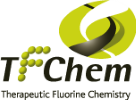Company’s Compound Does Not Release Hydroquinone, a Major Concern of Currently Marketed Skin Lighteners
Vancouver, British Columbia – November 29, 2012 – Sirona Biochem Corp. (TSX-V: SBM), announced today its subsidiary, TFChem, demonstrated stability of its skin depigmenting agents for cosmetic skin lightening. The company’s compounds, TFC-849 and TFC-723, were more stable than alpha- and beta-arbutin, two of the world’s most popular skin lightening compounds. In addition, the company’s compounds did not release hydroquinone, a potentially toxic substance linked to many leading skin lighteners. The study, funded through a $1.9 million French grant, is led by TFChem and involves a consortium of partners.
“We are addressing a major concern of skin lighteners by developing an alternative that does not release hydroquinone,” said Neil Belenkie, Chief Executive Officer of Sirona Biochem. “This study proves that we are on track to producing an effective and safe skin depigmenting agent that major cosmetic brands are seeking in their formulations,” he added.
Stability of the company’s compounds, TFC-849 and TFC-723, was measured in multiple conditions: chemical (buffer, pH, temperature), enzymatic (alpha- and beta-glucosidase, enzymes causing degradation of natural arbutins), and biological (sweat and skin tissular or cellular extracts). For comparison, alpha- and beta-arbutin were also tested in the same conditions. In all tested conditions, Sirona Biochem’s compounds were stable and did not release hydroquinone. However, the study showed both alpha- and beta-arbutin released hydroquinone.
Further studies to evaluate the company’s compounds’ safety and microbial innocuity are ongoing.
In Asia and the United States, hydroquinone is a commonly used but potentially toxic skin lightening agent. In some cases, commercial formulations of skin lighteners break down causing the release of hydroquinone. Safety concerns and adverse events related to the use of hydroquinone have resulted in the European Union banning its use and the United States putting restrictions on allowable hydroquinone concentration levels.
About Sirona Biochem Corp.
Sirona Biochem is a biotechnology company developing diabetes therapeutics, cancer vaccine antigens, skin depigmenting and anti-aging agents for cosmetic use, and biological ingredients. The company utilizes a proprietary chemistry technique to improve pharmaceutical properties of carbohydrate-based molecules. For more information visit www.sironabiochem.com.
About the Project
Sirona Biochem’s French subsidiary, TFChem received in November 2011 a $1.9-million grant. This project is co-financed by the European Union and Europe Witnesses in Haute-Normandie with the support of the European Regional Development Fund (E.R.D.F.). A consortium of partners – including the University of Rouen (LMSM EA4312), contract research organization Biogalenys, and TFChem – has been assembled to advance this project. The French government and European Union are looking to promote and initiate collaborative projects that are focused on the development of new products and services containing a high level of innovation.
Neither TSX Venture Exchange nor its Regulation Services Provider (as that term is defined in policies of the TSX Venture Exchange) accepts responsibility for the adequacy or accuracy of this release.
For more information regarding this press release, contact:
Julie Jang
Director, Communications
Sirona Biochem Corp.
Phone: 604.282.6065
Email: jjang@sironabiochem.com
———————————————
Sirona Biochem cautions you that statements included in this press release that are not a description of historical facts may be forward-looking statements. Forward-looking statements are only predictions based upon current expectations and involve known and unknown risks and uncertainties. You are cautioned not to place undue reliance on these forward-looking statements, which speak only as of the date of release of the relevant information, unless explicitly stated otherwise. Actual results, performance or achievement could differ materially from those expressed in, or implied by, Sirona Biochem’s forward-looking statements due to the risks and uncertainties inherent in Sirona Biochem’s business including, without limitation, statements about: the progress and timing of its clinical trials; difficulties or delays in development, testing, obtaining regulatory approval, producing and marketing its products; unexpected adverse side effects or inadequate therapeutic efficacy of its products that could delay or prevent product development or commercialization; the scope and validity of patent protection for its products; competition from other pharmaceutical or biotechnology companies; and its ability to obtain additional financing to support its operations. Sirona Biochem does not assume any obligation to update any forward-looking statements except as required by law.




